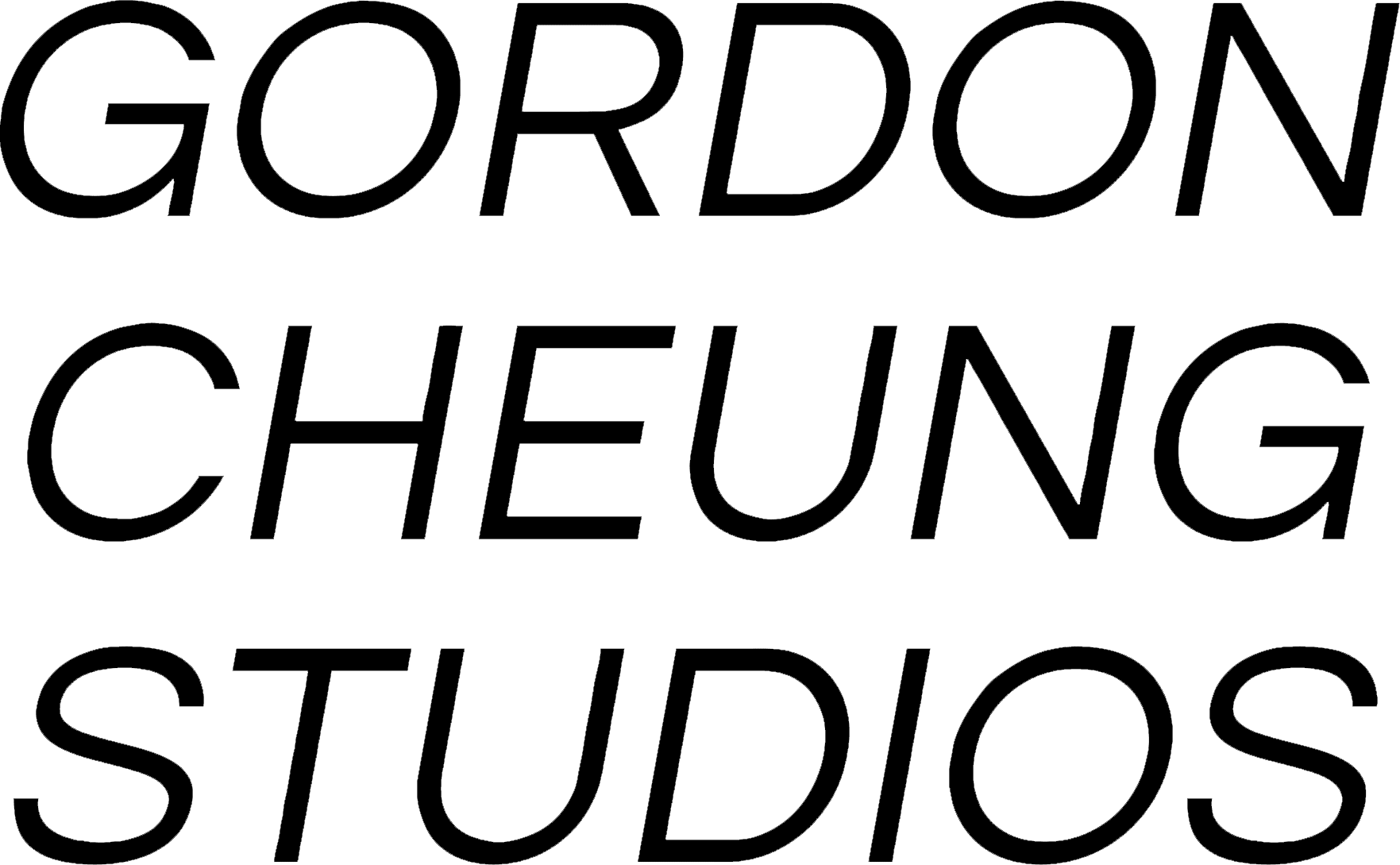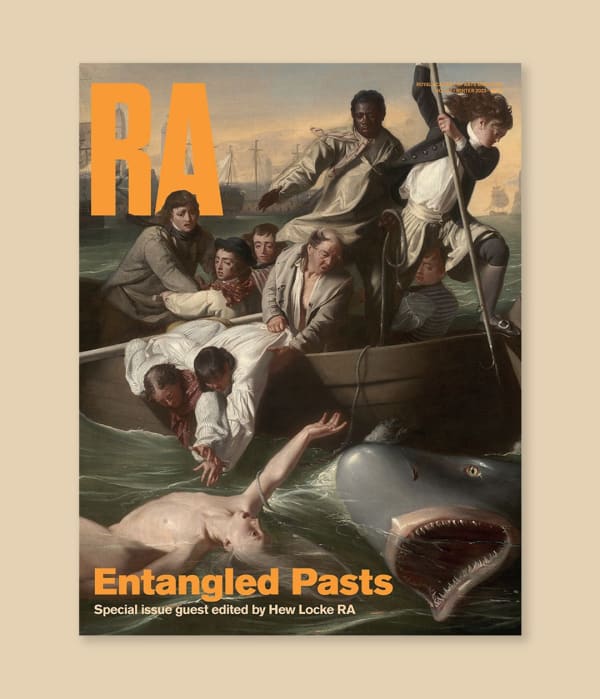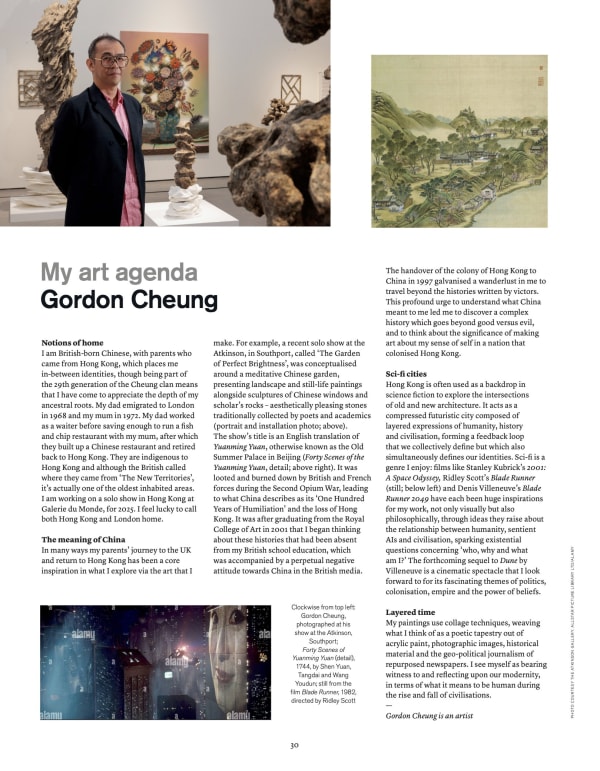Pleased to be included in the Royal Academy Magazine Winter 2023 Issue's art agenda.
I chose to highlight a lesser known dark chapter of British history when it became the 1st narco state in history with forcing China to consume opium by ‘gun diplomacy’, invasion and the looting and burning down of the Summer Palace that also lead to the colonisation of Hong Kong.
Many thanks to Hew Locke for including me in a great and fascinating issue about highlighting the challenging colonial histories of the West and bringing together conversations with curators, art historians, poets and artists about this complex subject.
Notions of home
I am British-born Chinese, with parents who came from Hong Kong, which places me in-between identities, though being part of the 29th generation of the Cheung clan means that I have come to appreciate the depth of my ancestral roots. My dad emigrated to London in 1968 and my mum in 1972. My dad worked as a waiter before saving enough to run a fish and chip restaurant with my mum, after which they built up a Chinese restaurant and retired back to Hong Kong. They are indigenous to Hong Kong and although the British called where they came from ‘The New Territories’, it’s actually one of the oldest inhabited areas. I am working on a solo show in Hong Kong at Galerie du Monde, for 2025. I feel lucky to call both Hong Kong and London home.
The meaning of China
In many ways my parents’ journey to the UK and return to Hong Kong has been a core inspiration in what I explore via the art that I make. For example, a recent solo show at the Atkinson, in Southport, called ‘The Garden of Perfect Brightness’, was conceptualised around a meditative Chinese garden, presenting landscape and still-life paintings alongside sculptures of Chinese windows and scholar’s rocks – aesthetically pleasing stones traditionally collected by poets and academics.
The show’s title is an English translation of Yuanming Yuan, otherwise known as the Old Summer Palace in Beijing (Forty Scenes of the Yuanming Yuan, detail; above right). It was looted and burned down by British and French forces during the Second Opium War, leading to what China describes as its ‘One Hundred Years of Humiliation’ and the loss of Hong Kong. It was after graduating from the Royal College of Art in 2001 that I began thinking about these histories that had been absent from my British school education, which
was accompanied by a perpetual negative attitude towards China in the British media.
The handover of the colony of Hong Kong to China in 1997 galvanised a wanderlust in me to travel beyond the histories written by victors. This profound urge to understand what China meant to me led me to discover a complex history which goes beyond good versus evil, and to think about the significance of making art about my sense of self in a nation that colonised Hong Kong.
Sci-fi cities
Hong Kong is often used as a backdrop in science fiction to explore the intersections
of old and new architecture. It acts as a compressed futuristic city composed of layered expressions of humanity, history and civilisation, forming a feedback loop that we collectively define but which also simultaneously defines our identities. Sci-fi is a genre I enjoy: films like Stanley Kubrick’s 2001: A Space Odyssey, Ridley Scott’s Blade Runner (still; below left) and Denis Villeneuve’s Blade Runner 2049 have each been huge inspirations for my work, not only visually but also philosophically, through ideas they raise about the relationship between humanity, sentient AIs and civilisation, sparking existential questions concerning ‘who, why and what am I?’ The forthcoming sequel to Dune by Villeneuve is a cinematic spectacle that I look forward to for its fascinating themes of politics, colonisation, empire and the power of beliefs.
Layered time
My paintings use collage techniques, weaving what I think of as a poetic tapestry out of acrylic paint, photographic images, historical material and the geo-political journalism of repurposed newspapers. I see myself as bearing witness to and reflecting upon our modernity, in terms of what it means to be human during the rise and fall of civilisations.


